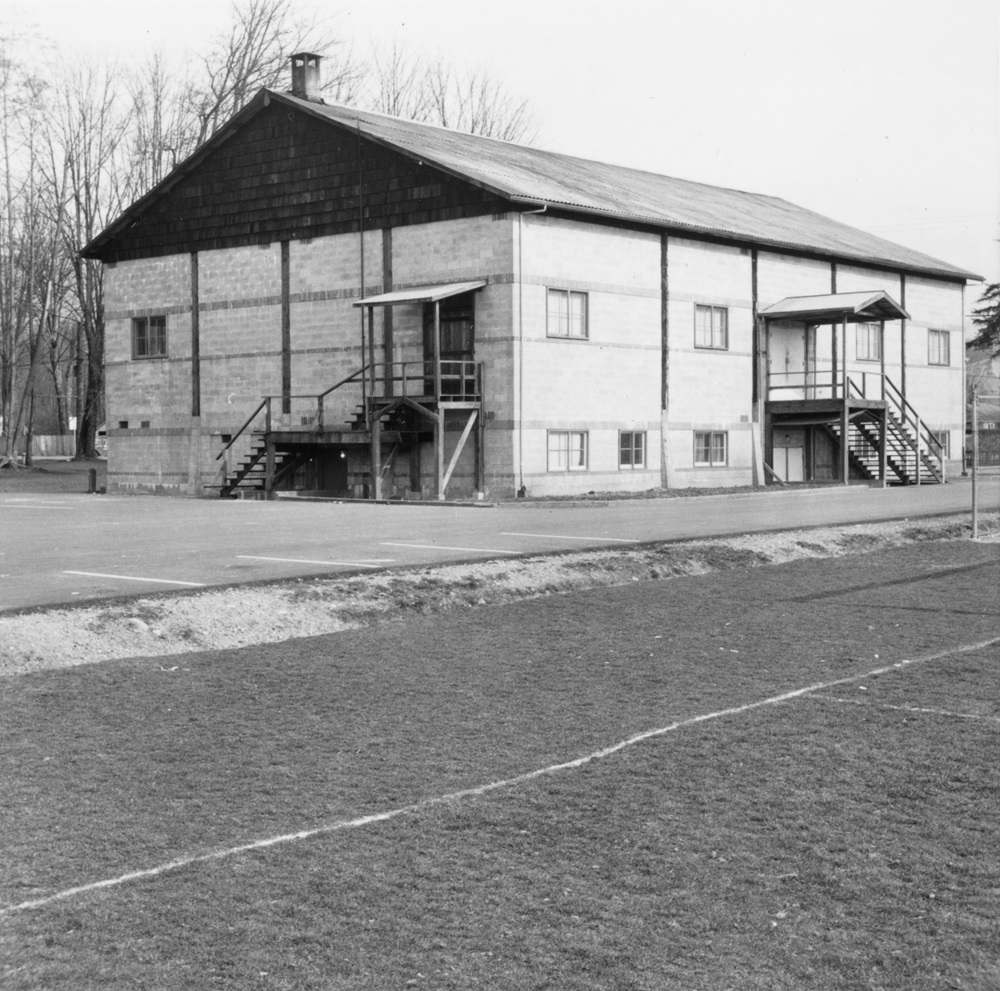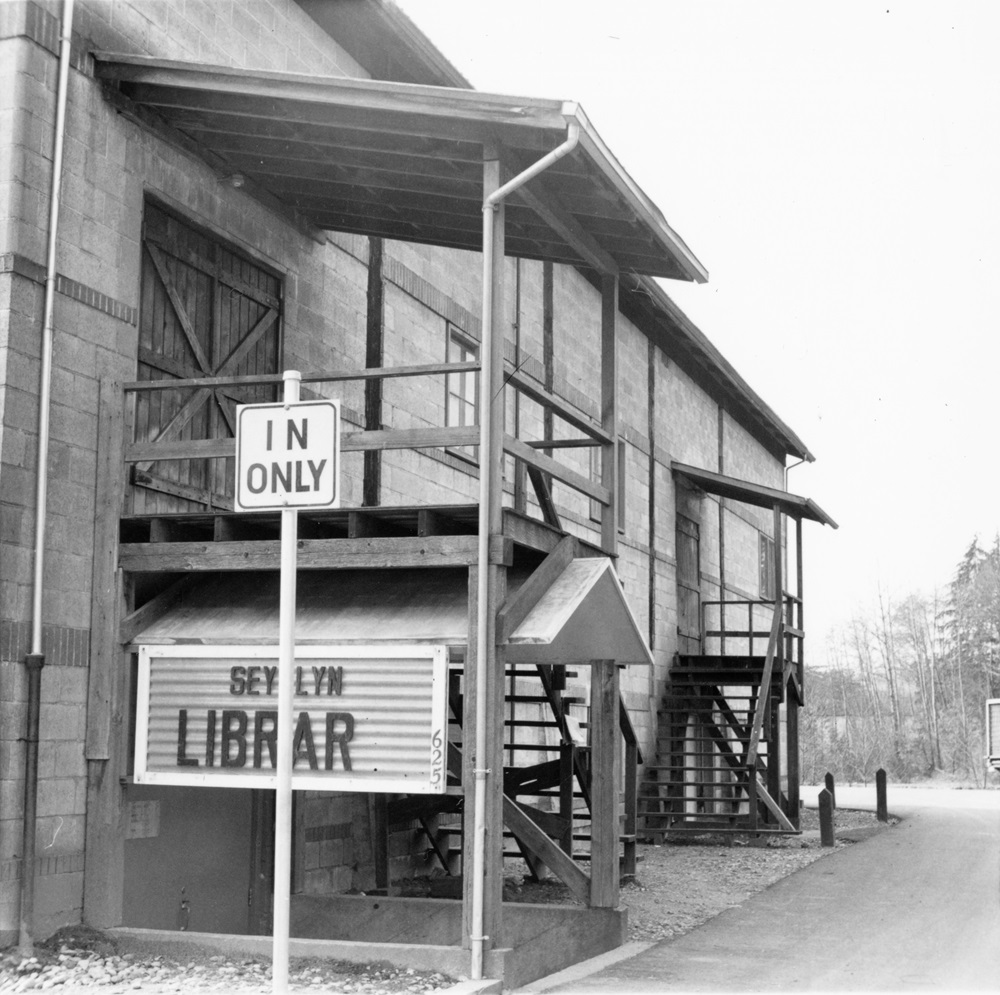By Georgia Twiss, Reference Historian
Beginning in the late 1940s, hundreds of local families took part in a variety of fundraising efforts to raise the money to build a new community hall for Seylynn. After years of dances, garden parties, auctions and work bees, the hall was officially opened in 1953. The building was constructed using volunteer labour and materials donated by local construction companies.
In its earliest years the hall was used as a community centre for children’s sports and recreation, dances and concerts. Around 1961, the Sey-Lynn Free Library moved in, and in 1964 the hall became the home of the North Shore Light Opera Society. By 1970 both the library and the opera had moved out, with the hall reverting back to a community space, hosting events like flea markets, dog shows, dance classes and estate sales throughout the 1980s and early 1990s. In 1996 the site became home to North Vancouver’s burgeoning punk scene, serving as an all-ages, “diy punk venue” for west-coast bands. Run by the youth, for the youth, and supported by North Shore Neighborhood House and the North Vancouver Recreation Commission, the space became known as a “safe haven for teens” and often raised money for charities and aid work. After more than 300 concerts, the last ever show was held on June 13, 2009.
If you have any memories of Seylynn Hall, let the Archives know! We are interested in capturing more of the site’s history from the 1990s onwards, particularly its relationship to the North Van punk scene.
Museum
115 West Esplanade
North Vancouver, V7M 0G7
T: 604-990-3700
E: info@monova.ca
OPENING HOURS
Wed | 10AM – 5PM
Thu | 10AM – 8PM (Open ’til late)
Fri | 10AM – 5PM
Sat | 10AM – 5PM
Sun | 10AM – 5PM
Friends Society
Archives
3203 Institute Road
North Vancouver, V7K 3E5
T: 604-990-3700 (ext.8013)
E: archives@monova.ca
OPENING HOURS
Drop-in Day
Tue | 12:30PM – 4:30PM
By Appointment
Mon, Wed – Fri | 12:30PM – 4:30PM
Newsletter
ACKNOWLEDGEMENT
We respectfully acknowledge that MONOVA: Museum & Archives of North Vancouver is located on the traditional lands of the Sḵwx̱wú7mesh (Squamish) and səl̓ílwətaɬ (Tsleil-Waututh) First Nations, whose ancestors have lived here for countless generations. We are grateful to live, work and learn with them on unceded Coast Salish Territory.






